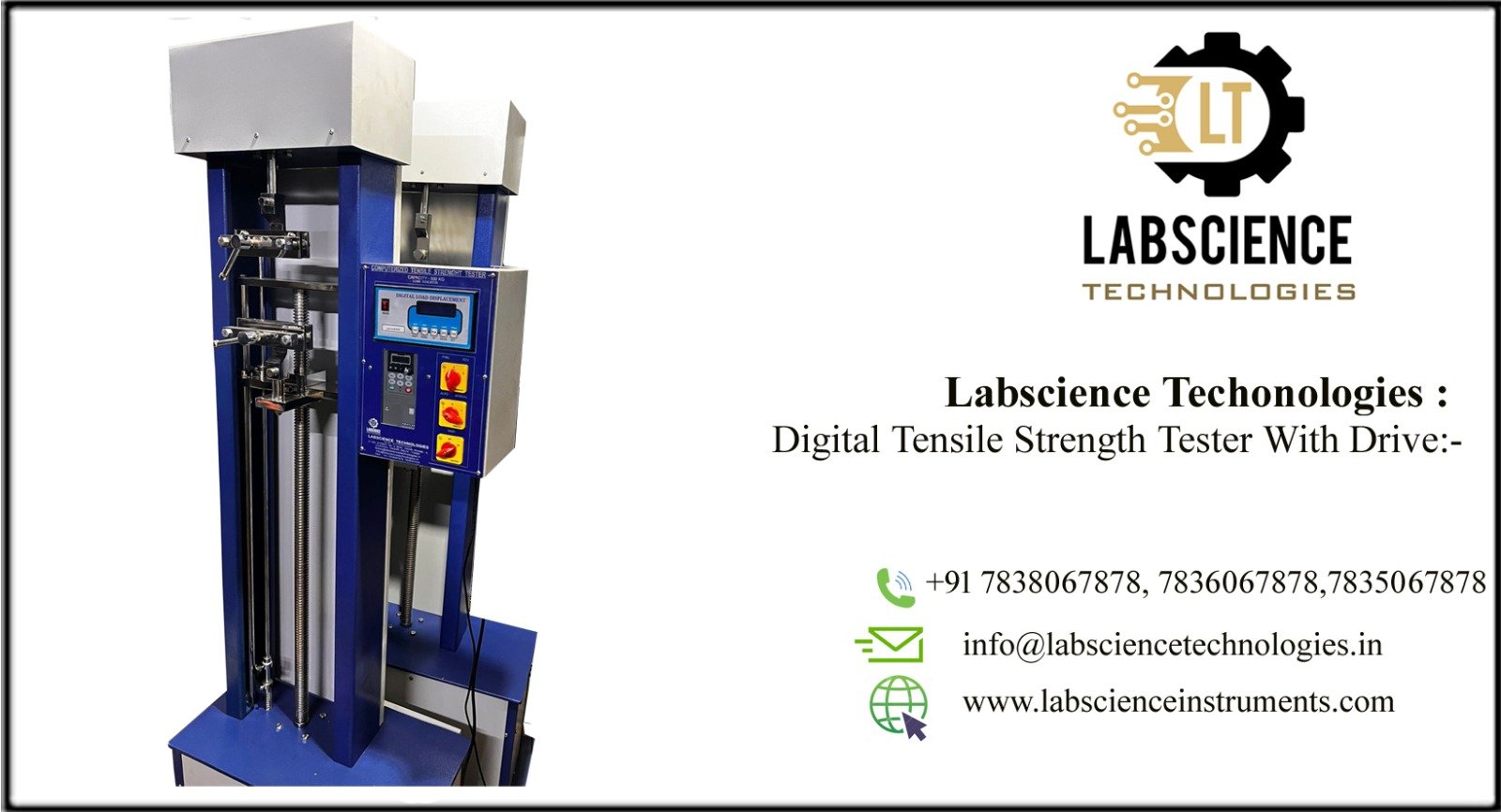Best Digital Tensile Strength Testers for Precise Material Testing
Best Digital Tensile Strength Testers for Precise Material Testing
When it comes to material testing, precision and accuracy are non-negotiable. The best digital tensile strength testers ensure reliable performance, meeting the demands of industries ranging from manufacturing to research. This guide explores the features, benefits, and applications of top-rated digital tensile strength testers designed for precise material testing.
Why Precision Matters in Material Testing
Understanding Tensile Strength
Tensile strength is the measure of a material’s ability to withstand stretching or pulling forces without breaking. Accurate measurement of this property is essential for:
- Ensuring product durability
- Enhancing safety standards
- Meeting regulatory requirements
Importance of High-Precision Testers
Precision in testing ensures consistent results, enabling manufacturers and researchers to make data-driven decisions. A digital tensile strength tester provides the level of accuracy required for critical applications.
Features of the Best Digital Tensile Strength Testers
1. Advanced Load Sensors
Top models are equipped with high-precision load cells capable of detecting even minor force variations.
2. Real-Time Data Display
Digital testers provide instant feedback during tests, allowing operators to monitor results in real-time.
3. User-Friendly Software
Integrated software simplifies data analysis, reporting, and storage, making it easier to interpret results.
4. Wide Range of Testing Capabilities
High-quality tensile strength testers accommodate various sample sizes and material types, including:
- Metals
- Plastics
- Textiles
5. Automated Calibration
Automation ensures the machine maintains consistent performance, reducing human error and downtime.
Top Benefits of Using Digital Tensile Strength Testers
1. Improved Accuracy and Reliability
Digital testers eliminate manual errors, providing consistent and reliable results across multiple tests.
2. Enhanced Productivity
Automated features streamline the testing process, saving time and labor.
3. Versatility Across Applications
From industrial production lines to academic research, digital testers cater to diverse testing needs.
4. Compliance with Standards
Most digital tensile strength testers adhere to international standards such as ASTM and ISO, ensuring global applicability.
How to Choose the Best Digital Tensile Strength Tester
1. Assess Material Requirements
Understand the properties of the materials you will test, such as strength range, flexibility, and durability.
2. Consider Load Capacity
Choose a tester with the appropriate load capacity for your application to avoid underperformance or damage.
3. Evaluate Software Features
Ensure the tester includes software that meets your analysis and reporting needs, with features like graphing and data export.
4. Check for Durability and Build Quality
Invest in a robust tester made from high-quality materials for long-term reliability.
Applications of Digital Tensile Strength Testers
1. Manufacturing
Digital tensile testers ensure the quality and durability of products like pipes, cables, and packaging materials.
2. Aerospace and Automotive Industries
These industries rely on precise material testing to maintain safety and performance standards.
3. Academic Research
Researchers use digital tensile testers to study the mechanical properties of materials.
4. Quality Assurance in Textiles
Tensile testing is critical for fabrics and yarns to meet industry benchmarks.
Popular Digital Tensile Strength Testers in the Market
1. Universal Testing Machines
These versatile testers handle a range of tests, including tensile, compression, and flexural strength measurements.
2. Compact Digital Testers
Designed for smaller samples, these testers are ideal for laboratory settings.
3. Portable Tensile Testers
Perfect for on-site testing, portable models combine precision with convenience.
4. High-Capacity Digital Testers
Used in industries requiring testing of large and heavy samples, such as construction materials.
Future Trends in Tensile Testing
1. AI-Driven Analysis
Artificial intelligence integration allows for predictive insights and enhanced test result analysis.
2. IoT Connectivity
Testers with IoT capabilities enable remote monitoring and data sharing in real time.
3. Sustainable Designs
Manufacturers are focusing on energy-efficient testers that reduce the environmental impact.
Conclusion
The best digital tensile strength testers combine precision, reliability, and versatility, making them indispensable tools for precise material testing. By understanding your specific requirements and evaluating available options, you can invest in a tester that enhances your testing processes.
As technology advances, these machines are becoming smarter and more efficient, ensuring their relevance across industries for years to come. Prioritize quality and features when selecting a tensile strength tester, and reap the benefits of accurate material testing.
Kindly fill this form to demand a call-back to from our client support boss with esteeming and details.
+91 7838067878
Call Now
+91 7838067878

